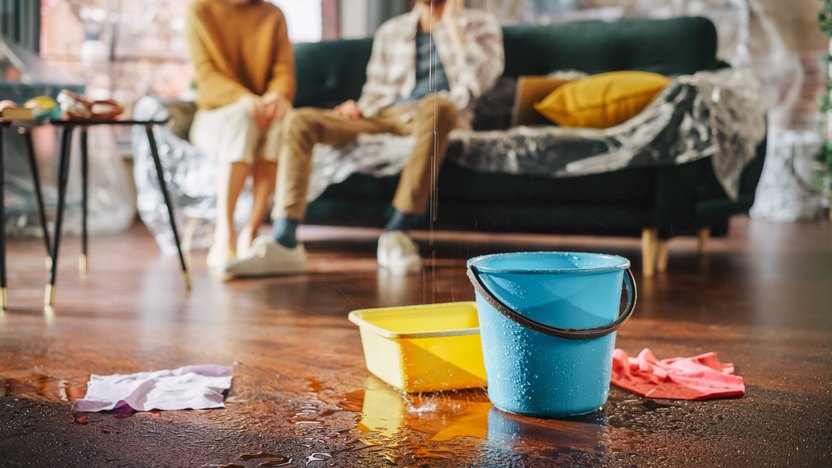
Water damage in your home can be a distressing event, leaving you anxious about the potential costs of repairs. The critical question “Does your home insurance cover water damage from leaks?” is top of mind when faced with soggy carpets and peeling paint. It’s essential to understand insurance coverage nuances to ensure you’re not caught off guard.
Most standard home insurance policies provide coverage for water damage, but the source of the leak often determines eligibility for claims. Sudden and accidental incidents, such as a burst pipe, typically qualify for coverage. However, gradual leaks that reflect poor maintenance may not be covered. It’s imperative to regularly inspect your home for water damage signs to bolster your claim if leaks occur.
Having a grasp on your policy details is crucial for peace of mind. Regular policy reviews can help you understand the specifics of water damage coverage, such as exclusions and deductibles. If in doubt, consulting with your insurance agent can clarify coverage limits and guide you on steps to minimize risks, ensuring you’re not left out in the rain when leaks strike.
Understanding home insurance coverage for water damage from leaks
When it comes to your home insurance, not all water damage situations are created equal. Generally, insurance policies provide coverage for sudden and accidental incidents, which can include water damage from a burst pipe or a random leak. However, it’s essential to delve into the specifics of your policy to determine what types of water damage are covered.Key Coverage Points:
- Accidental leaks: If a pipe unexpectedly bursts, insurance typically steps in to cover the damages.
- Maintenance issues: On the flip side, if neglect or lack of maintenance leads to a leak, your policy may not offer protection.
How water damage coverage functions in home insurance
Understanding how water damage coverage functions in your home insurance policy requires paying attention to certain terms and conditions. Your policy will likely list the perils or risks that it covers, such as “accidental discharge of water.” Be sure to review these terms carefully.Policy Limitations:
- Gradual damage: Damage that occurs over time, such as with a slow leak, may not be covered.
- Source of the leak: Coverage can depend on where the leak originated, with some sources potentially being excluded.
The process of claiming water damage on your home insurance
In the unfortunate event of water damage, acting promptly can make all the difference. Once you’ve discovered the leak, contacting your insurance company should be at the top of your to-do list. They’ll guide you through the claims process, which typically involves: 1. Documenting the damage thoroughly with photos and a detailed account.2. Mitigating further damage by stopping the leak and protecting undamaged property.3. Arranging for a professional assessment, which can involve lekdetectie experts like Ultrices Lekdetectie, to determine the extent and cause of the damage.
Types of water damage: what’s covered and what’s not
Not all types of water damage are covered by home insurance policies, and it’s important to know the difference. For instance, damage from natural floods is usually not covered under a standard home insurance plan and requires separate flood insurance.Typical Covered Scenarios:
- Sudden pipe bursts: This unexpected event is usually covered.
- Appliance malfunctions: If your washing machine or dishwasher malfunctions causing a leak, this might also be covered.
Common Exclusions:
- Floods: Damage from rising water from rivers, lakes, or heavy rainfall usually needs separate flood insurance.
- Intentional damage: Any damage that is deemed intentional will not be covered by your policy.
Get professional help for leak detection and prevention
To avoid the hassle of dealing with water damage and the complexities of insurance coverage, it’s wise to invest in preventive measures. Ultrices Lekdetectie can assist in detecting leaks before they cause significant damage. With our no cure no pay policy and expertise in leak detection throughout the Netherlands, we’re a reliable choice for protecting your home.Consider scheduling regular inspections to catch potential leaks early on, especially in areas prone to leaking, such as: – Under sinks – Around water heaters – Within HVAC systems – In basements or crawl spaces
Final considerations when dealing with water damage and insurance
Finally, always double-check the specifics of your home insurance policy to be fully aware of what it covers regarding water damage from leaks. It’s prudent to have a clear understanding of lekkage opsporen services that you might need in case of an incident.If you’re facing water damage due to issues like plafond lekkage or dakkapel lekkage, getting expert advice should be your first step. It can make the insurance claim process smoother and prevent similar issues down the line.Remember, water damage from leaks can be stressful, but with the right knowledge and resources, you can navigate the situation successfully.
FAQ: Understanding Home Insurance Coverage for Water Damage from Leaks
1. Does home insurance typically cover water damage caused by leaks?
Ah, the old ‘drip-drip’ conundrum! Your home insurance policy may act like your trusty umbrella, but whether it covers water damage from leaks depends on the source and type of leak. Generally, sudden and accidental leaks, like a rogue washing machine hose, could be covered. But if that leak’s been playing hide and seek for months, the damage might not be covered since it’s considered a maintenance issue.
2. What kind of water leaks are most commonly covered by home insurance?
Imagine it’s a battle against water leaks: your policy usually has your back for the unexpected ones, like a pipe that decides to burst and create an indoor pool in your living room. Standard policies often cover that. But leaks that creep up over time, akin to the plot of a slow-moving thriller, are usually not on your policy’s VIP list.
3. Are there any exclusions I should be aware of regarding leaks under home insurance?
Picture your policy as a picky eater; there are things it just won’t accept. Damage from unresolved maintenance leaks, gradual wear and tear, or that pesky friend named ‘flood’ often get a red card. Always read the fine print, because exclusions can sneak up on you like calories in a “healthy” dessert bar.
4. Will my insurance help if a hidden leak damages my foundation?
If you stumble upon a leak that’s been secretly waging war against your foundation, it’s like drawing a wildcard—it could go either way. Standard policies might shy away from covering it. But if you’ve got additional coverage, you might just have the golden ticket. It’s all about checking those policy details.
5. How can I ensure water damage from leaks is covered in my home insurance?
To avoid an awkward “It’s not you, it’s me” conversation with your insurer, be proactive. Regularly maintain your pipes, and consider getting a comprehensive policy with all the trimmings. Be sure to ask your agent if your policy includes endorsements for those sneaky hidden leaks. Prevention is always better than a cure, especially when it comes to your wallet and home.





